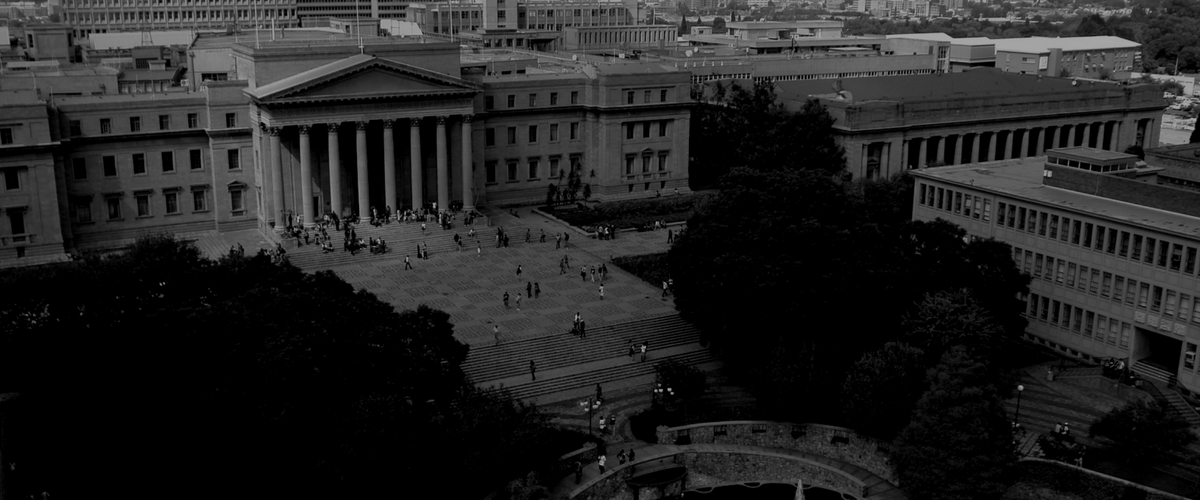
Honours
The Media Studies Honours programme is rigorous and demanding, with a major research component. Each student is assigned a supervisor during the first block and must submit a 10,000-12,000 word original research report at the end of the second semester.
Students take four courses during the year (one core course and one elective per semester). Some examples of our past course offerings are listed below. These are subject to change on an annual basis in line with staff expertise and developments in the field. Students may be permitted to take elective courses from other departments as part of their Honours requirements. Please email the Honours coordinator with further queries.
-
Critical Media Analysis – SLLS4002
This course is aimed at deepening students’ critical and analytical abilities in media and cultural studies. It offers students a more thorough understanding of crucial theoretical concepts that they have encountered in their undergraduate degrees as well as introducing them to new ideas from across a multi-disciplinary spectrum within the humanities and social sciences. This course is intimately related to the long essay module that forms 50% of the mark for a Media Studies Honours degree. In investigating these theoretical notions and forms, students are given the opportunity to explore advanced conceptual material and consider how they would like to frame their research. The course is delivered by Media Studies staff and by a diverse array of exciting and expert guest lecturers.
-
African Media Systems – SLLS4001
This course seeks to develop students’ critical understanding of the systems and roles of the media in Africa. Grounded in historical and current political realities, the course will focus on how local and global historical, social and economic forces shape and influence the media in Africa. Specific topics will include historical overview, colonial legacy, normative media theories and systems, media and democracy, development journalism and the state, media ethics and citizenship and participation.
-
Long Paper – SLLS4006
All honours students are to enrol for long research paper as a course, whereupon they will be allocated an appropriate supervisor with the department. The student is expected to conceptualize a critical research project for academic inquiry. This is a year-long project to be undertaken under supervisory guidance and collaboration. Students are expected to write and submit a formal academic proposal for their long essay. This compulsory research project will thereafter culminate in the submission of a 10, 000 word-long essay at the end of the academic year.
-
Media and Gender – SLLS4059
This course introduces students to a variety of theories and concepts around gender and the media. Much research has gone into showing the ways in which mass media circulate images of men, women and transgender(ed) people that are limiting, oppressive and violent. At the same time, some African/postcolonial feminist research has highlighted the limitations of focusing on numbers of women journalists and office-bearers since increasing numerical representation does not automatically translate into more nuanced gendered representations in all facets of the media. Literature on the media and sexuality, which covers representations of masculinities and femininities as well as varied media idioms around subaltern sexualities (lesbian, gay, bisexual, transgender, intersex) informed by developments within interdisciplinary Queer, Feminist/womanist and Postcolonial Studies is of paramount importance here. Strands within Media Studies and/or Cultural Studies have also pointed to the manner in which media outlets co-create, recycle and reinforce larger public sphere understandings of how gender works.
-
Global Cinema and Society – SLLS4057
This course introduces students to a range of contemporary feature films from varying countries around the world, taking in Africa, Europe, Asia, the Middle East and the Americas. It offers an introduction to critical methods within film studies and emphasises the ideological underpinnings of popular cinema across the world. The selected films are used as a means of discussing the way in which cinema both depicts and impacts on global social issues including race, gender, sexuality, class, labour, religion and the tensions between tradition and modernity. The course places South African media production in conversation with film industries elsewhere in Africa, the global South and the rest of the world.
-
Media and Politics – SLLS4010
The theoretical foundation of this course is radical democracy particularly that of Chantal Mouffe's On the Political. "Radical" because it encompasses the extension of democracy into more areas of the social. From political philosophy we move on to media and journalism and apply radical democracy theories especially that of necessary social conflict and agonism to case studies in the South African context. Within this theoretical framework journalists are viewed as "legitimate adversaries" or agonists in a democracy and not enemies. But is there enough diversity, and pluralism and voices from the margins in the South African media? The key concepts and case study areas in this course are: freedom and responsibility, media and democracy, freedom of expression, access to information, censorship, and fake news. The sections are: Media and Transformation: race and gender, community media and diversity; with a special emphasis on the ANC’s impending media appeals tribunal and the state’s Protection of State Information bill (dubbed the Secrecy bill). The big connection here is: why is media freedom relevant in South Africa today? And what is the connection between the publics right to know and the media’s duties and responsibilities. The course is highly topical and packed with current political affairs.
-
Media and the Environment – SLLS4055
This semester-long course invites students to explore a range of environmental issues, in the context of media and communications. The course will expose students to ecological, climate and planetary debates and invite them to assess the extent to which public forms of dialogue and activism may contribute to creating sustainable solutions. In particular, the course will explore the links between consumer culture, neoliberal economics, and massive environmental problems facing the planet. The course will explore a range of media forms, from documentary film, to activist communications, to social media campaigns, to science-fiction.

